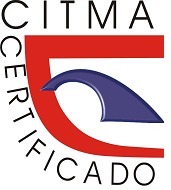Some recommendations of a Reference Model for Digital Transformation in health
Keywords:
e-health; Electronic Medical Record ; digital transformation of healthAbstract
Introducing information technologies in clinical and administrative processes of the hospital life is not a matter of discussion. The need of introducing this technologies and particulary the implementation of the Electronic Medical Record as a basic project to transform hospitals and health institutions and systems is a consensus reached. If we consider the moment we are, when so many technology innovations have done; we can not think of a better moment to transform our health institutions into succesfull, efficient and sustainable ones. Then, the implementation of ICT in the clinical processes is more than hopefull. It’s mandatory. In this paper we deal with some of the chalenges that cuban health institutions are facing in the digital transformation from the medical point of view. We will evaluate some barriers endorsed by healthcare profesionals and expert opinions and some other common problems in the management of hospitals and other health institutions and will propose a model as a matter of refference for adopting ICT that will defiene the methodological bases for a succesfull digital transformation of health institutions through a planified, iterative and incremental approach.
References
Becerril, A. El big data ayudará a hacer la medicina predictiva. El Economista. 2017 Recuperado de https://www.eleconomista.com.mx/tecnologia/El-big-data-ayudara-a-hacer-la-medicina-predictiva—20170906-0141.html,
Canton J. The Extreme Future: The Top Trends That Will Reshape the World in the Next 5, 10, and 20 years. Penguin Group, USA. 2006
Christensen Clayton M., Baumann Heiner, Ruggles Rudy y Sadtler Thomas M. Innovación disruptiva para el cambio social. Harvard Business Review, América Latina. 2006
García Barbosa J. La medicina del futuro pasa por big data. (2014, October 09). 2014 Recuperado de https://aunclicdelastic.blogthinkbig.com/la-medicina-del-futuro-pasa-por-big-data
Hammond R. El mundo en 2030. Ediciones Yago. 2008
Herrera, J. A., Sacasas, J. A. F. El método clínico y el método científico. MediSur, 8(5), 12–20. 2010 Recuperado de http://www.redalyc.org/articulo.oa?id=180020098003.
J. The Extreme Future: The Top Trends That Will Reshape the World in the Next 5, 10, and 20 years. Penguin Group, USA. 2006
Nitesh V. Chawla y Darcy A. Davis. Bringing Big Data to Personalized Healthcare: A Patient-Centered Framework, University of Notre Dame, Notre Dame. 2013
Philips. Comparte innovación - ¿Cómo influyen las apps y wearables en la gestión y el cuidado sanitario? 2015 Recuperado de http://www.comparteinnovacion.philips.es/salud-conectada/articulos/como-influyen-las-apps-y-wearables-en-la-gestion-y-el-cuidado-sanitario.
Pique, J. ¿Dónde está y hacia dónde va nuestro sistema sanitario? Medicina Clínica, 140(11), 514–519. 2013 Recuperado de https://medes.com/publication/81339.
Wang W; Krishnan E, Big Data and Clinicians: A Review on the State of the Science, JMIR MEDICAL INFORMATICS. 2014
Downloads
Published
How to Cite
Issue
Section
License
Copyright (c) 2020 Juan Antonio Gutiérrez Martínez, Ailyn Febles Estrada

This work is licensed under a Creative Commons Attribution-NonCommercial 4.0 International License.













